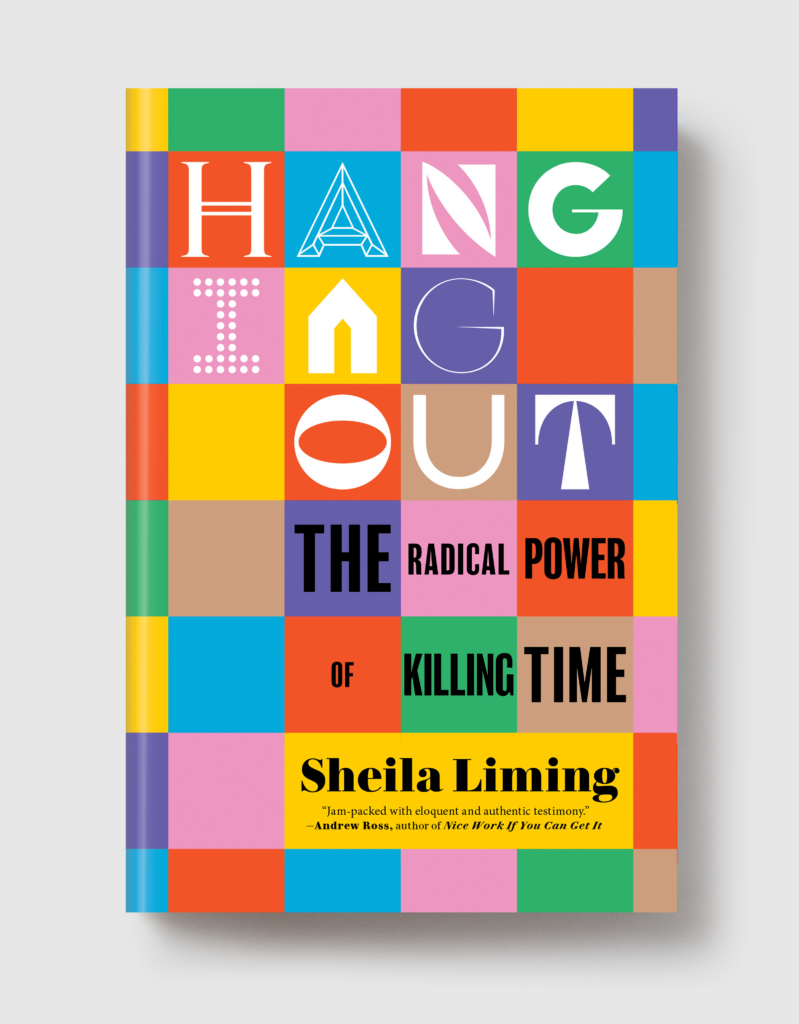“Put your phone facedown on the table, the way you do when you’re talking to a friend who really needs your attention. Or better yet, throw it out the window. Take off your coat. Pull up a chair. Grab yourself a beverage. Hang out for a bit,” suggests Professional Writing Professor Sheila Liming in her new book about the anxieties of simply “hanging out.”
Released in January, Hanging Out: The Radical Power of Killing Time is “A smart and funny manifesto about the simple art of hanging out and how our collective social experiences can be transformed into acts of resistance and solidarity, from a brilliant young feminist critic,” according to its publisher Melville House. It analyzes the complexities of how we spend time with others in modern society, through parties, jam sessions, virtual hangouts, and even on reality TV.
Liming wants readers to make hanging out a priority again. She enforces throughout the book that although the Covid-19 pandemic made it difficult to hang out, humanity was struggling with the pastime well beforehand. It’s something that people tend to put on the back burner, but Liming argues we need it more than we think.
Connections Worth Having
“The concept of hanging out is very simple on its surface. It involves spending unstructured time in the company of other people. But even more than that, it involves permitting ourselves the occasion to view that activity as important,” Liming says. “Hanging out means granting ourselves space, excuses, and freedom from the burdens of productivity, and that’s the hard part of this otherwise relatively simple concept.”
Her newest book follows Office, published by Bloomsbury Press and written prior to the pandemic, which was an exploration about the concepts, stereotypes, and decline of the office. In Hanging Out, Liming writes about what she calls “endangered species,” a.k.a. the activities in human life that seem to be increasingly rare. It discusses similar topics as its predecessor, including a chapter dedicated to an interesting perspective around participation expectations at work—like attending conferences (sometimes on your own dime) and spending time with colleagues—titled “Hanging Out on the Job.”
Liming explains that although this book has been developing in her mind for several years, much of the content came from her informal conversations with Champlain students.
“In my classes, I talked with students about hanging out and listened to their stories and it taught me a lot and also directed me towards new avenues for investigation,” she says. “I’m so grateful for the students I get to work with here! They’re bright, inquisitive, professionally-minded, and they don’t give up.”
In fact, Liming even includes one of her classes in the acknowledgments section of the book, writing, “Thanks, especially, to the members of my WRT 337 Advanced Creative Nonfiction class, held during the Spring 2022 semester at Champlain College.”
Hanging Out with the New York Times
As part of her promotion for Hanging Out, Liming spoke with The New York Times about her book and her radical ideas about the importance of unstructured time to connect.
“We live in a hyperscheduled Google Calendar world, where we make appointments with each other to get any face time. So there’s a sense that if you hang out with someone, you’re stealing time away from their calendar. It adds pressure to perform, to make it good,” she said in her Q&A with the New York Times.
Liming’s conversation dove into topics like her own experience making friends as an adult, what she’s learned from her Champlain students, and understanding the difference between organized fun and duty. Read the full interview.
